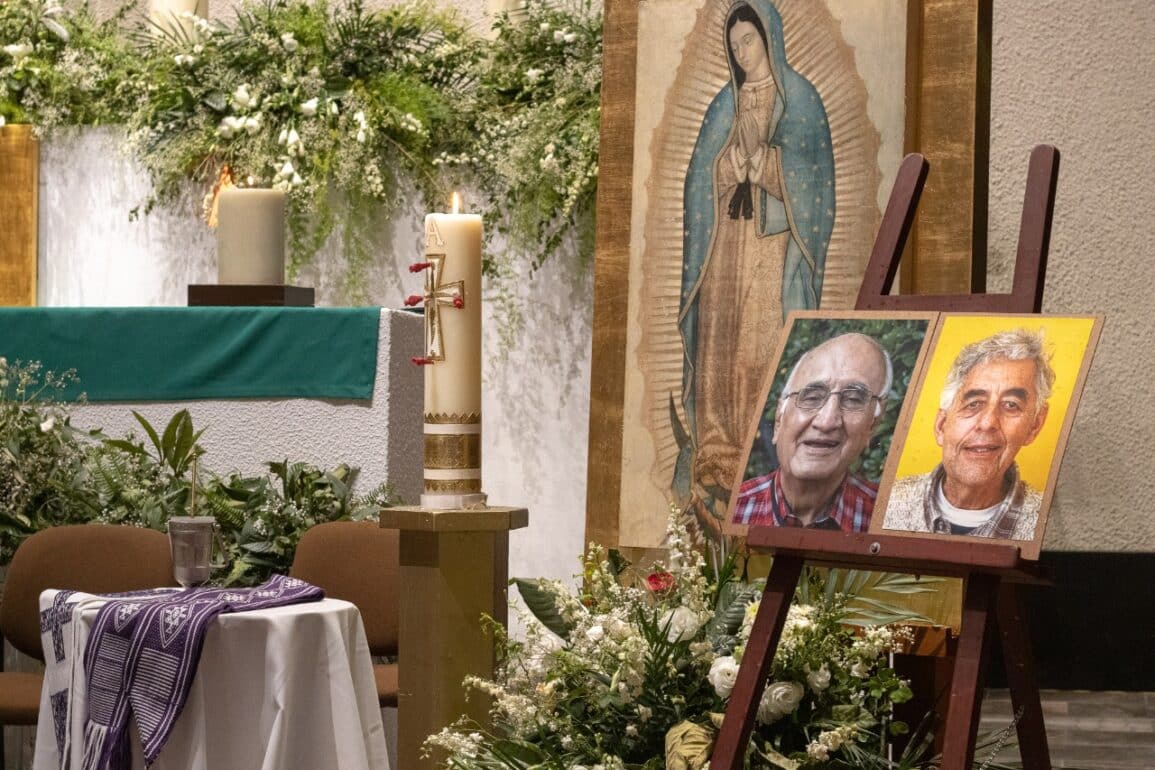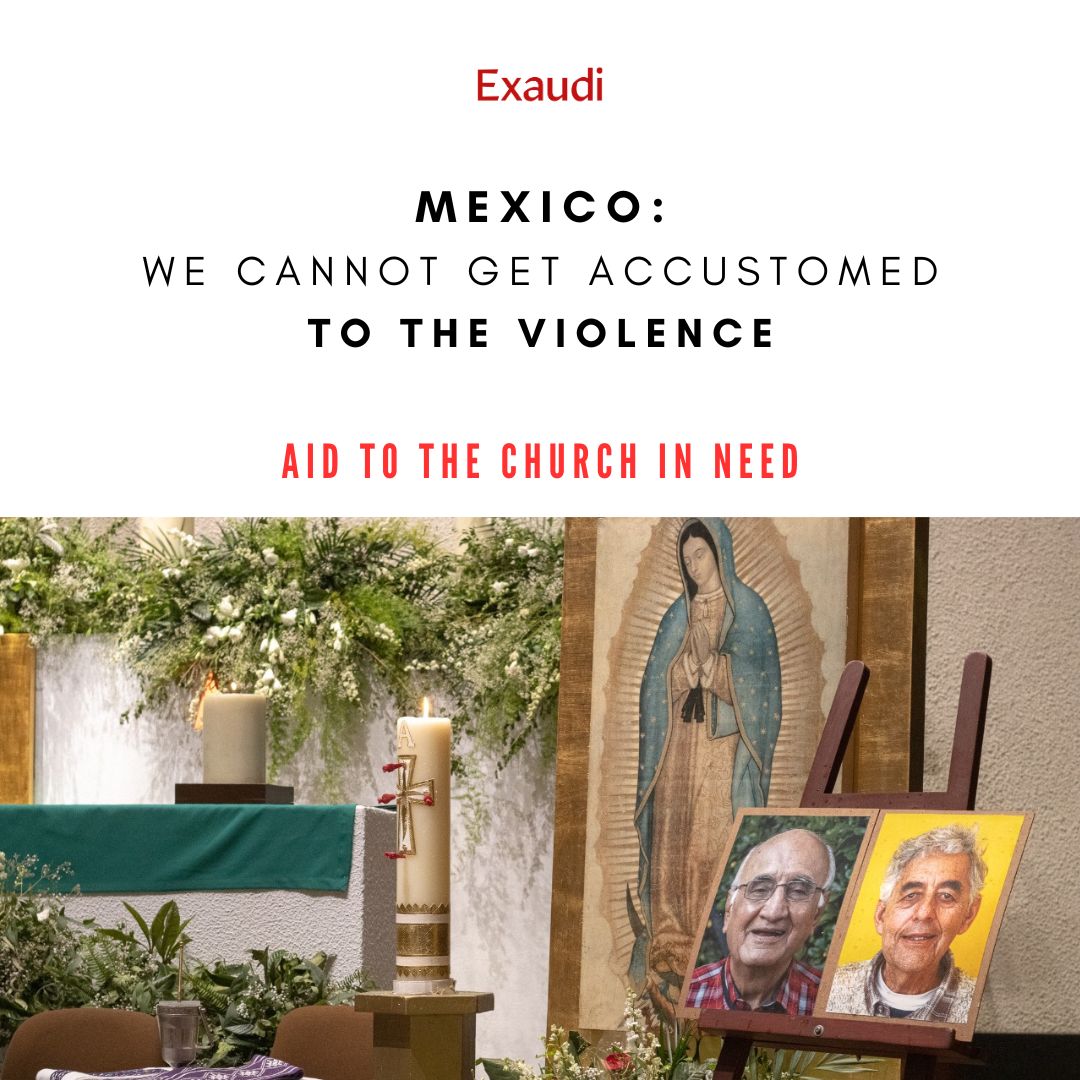Mexico is considered one of the most violent and dangerous countries in the world. According to a report on criminality in Mexico, by the country’s National Citizen’s Observatory, there were 15,560 victims of intentional homicide in the first half of 2023, 70.2% of whom were killed with firearms, a crime that has increased by 52% under the current Mexican administration.
Mexico also has a worrying problem with disappearances. Between 1 December 2018 and 30 June 2023, 43,119 people were reported missing and have not been found. Impunity, and lack of justice for victim’s families only increases the pain and anguish that accompany such a situation. Domestic violence has also reached unprecedented levels, the first semester of 2023 saw a record domestic violence rate, with two investigations opened every minute.
This violence has also affected the Church. Five priests were murdered over the past two years. The most recent victim, Javier García Villafaña was killed in Michoacán state when he was on his way to celebrate Mass. The previous day, Archbishop Faustino Armendáriz Jiménez, of Durango, barely escaped an attempt on his life in his own cathedral, and one month later two catechists were gunned down as they headed to a eucharistic procession in the state of Oaxaca.
National Dialogue for Peace
Faced with the urgent need to take effective measures to fight crime and protect the population, the Church and members of civil society joined forces to organize 1,002 talks and 50 national peace forums, and studied 298 successful peacebuilding measures.
The nationwide mobilizations after the murders of Jesuit priests Javier Campos and Joaquín Mora in the community of Cerocahui, Chihuahua in Mexico were the trigger for the Church to take the initiative.
Following these gatherings, the Mexican Bishops’ Conference, the Conference of Religious of Mexico (CEM), the Jesuits and the Episcopal Commission for the Laity organized a National Dialogue for Peace, which was supported by the Aid to the Church in Need Foundation (ACN) and took place between 21 and 23 September.
A total of 1,300 people took daily part in this project, which showcased the voices of businessmen, migrants, indigenous, academics, countryside workers, mothers of missing people and the general public.
Speaking to ACN, Bishop Ramón Castro Castro, secretary-general of the CEM, explained that the Catholic Church in Mexico has played a leading role in the National Dialogue for Peace, forming different groups and organising an ecumenical gathering with Jews, Buddhists, Muslims, Evangelicals and Pentecostals, as well as police agents and government members, which can be of some influence towards ending violence in Mexico.
Victims are not alone
Monsignor Ramón Castro, who is also Bishop of Cuernavaca – one of the most violent dioceses in the country – believes that peace is possible, and that the Church is contributing to set solid foundations to achieve it: “Our work is sustained by the pain of victims, we want to let them know that they are not alone, that there is sufficient energy, generosity and intelligence in Mexico to transform our reality and overcome this dark period which has done enough damage to us all”.
The final touch to the National Dialogue was the signing of a document, the Citizen’s Ageement for Peace, drawn-up by specialists and which calls for the eradication of indifference and violence, as well as the promotion of actions that can be implemented across the country, such as the creation of a National Peace Network to encourage the implementation of a National Peace Agenda in different social sectors. “Not only do we say ‘enough!’, we also say that the time has come to act!”, says the document.
Gratitude for the generosity of ACN benefactors
During his conversation with ACN, Bishop Castro specifically thanked the foundation for its support, which made the whole National Dialogue for Peace possible. “We cannot lose hope of being artisans of peace, we must not let ourselves be defeated by evil, a majority of us want what is good. We should echo Pope Francis’ words in Mexico to not get accustomed to violence, because that makes us numb to the pain caused by all criminality, which is the worst that can happen to the human heart”, he said.
The director of ACN Mexico, Julieta Appendini, explained that the support for the National Peace Dialogue was a concrete way to contribute to peacebuilding in Mexico and standing in faith and hope with the will and generosity of many others. “ACN will continue to help the Church in Mexico during the peacebuilding processes”, said Appendini.











